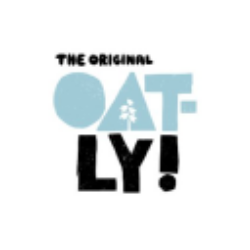FMP

Oatly Group AB
OTLY
NASDAQ
Oatly Group AB, an oatmilk company, provides a range of plant-based dairy products made from oats in Sweden. It offers Barista edition oatmilk, oatgurts, frozen desserts, ice-creams, and yogurts; ready-to-go drinks, such as cold brew latte, mocha latte, matcha latte, and mini oat drink in original and chocolate flavors; and cooking products, including Cooking Cream, in regular and organic, Crème Fraiche, Whipping Cream, Vanilla Custard and Spreads in a variety of flavors. The company was formerly known as Havre Global AB and changed its name to Oatly Group AB in March 2021. The company was founded in 1994 and is headquartered in Malmö, Sweden.
10.14 USD
-0.14 (-1.38%)
Operating Data
Year
2020
2021
2022
2023
2024
2025
2026
2027
2028
2029
Revenue
421.35M
643.19M
722.24M
783.35M
823.67M
985.41M
1.18B
1.41B
1.69B
2.02B
Revenue %
-
52.65
12.29
8.46
5.15
19.64
19.64
19.64
19.64
Ebitda
-32.96M
-172.15M
-335.15M
-287.79M
-86.13M
-252.63M
-302.24M
-361.59M
-432.6M
-517.55M
Ebitda %
-7.82
-26.77
-46.4
-36.74
-10.46
-25.64
-25.64
-25.64
-25.64
Ebit
-46.08M
-199.37M
-383.47M
-339.76M
-136.09M
-305.32M
-365.28M
-437.01M
-522.83M
-625.49M
Ebit %
-10.94
-31
-53.09
-43.37
-16.52
-30.98
-30.98
-30.98
-30.98
Depreciation
13.12M
27.22M
48.31M
51.97M
49.97M
52.69M
63.04M
75.42M
90.23M
107.94M
Depreciation %
3.11
4.23
6.69
6.63
6.07
5.35
5.35
5.35
5.35
EBIT (Operating profit)(Operating income)(Operating earning) = GROSS MARGIN (REVENUE - COGS) - OPERATING EXPENSES (R&D, RENT) EBIT = (1*) (2*) -> operating process (leverage -> interest -> EBT -> tax -> net Income) EBITDA = GROSS MARGIN (REVENUE - COGS) - OPERATING EXPENSES (R&D, RENT) + Depreciation + amortization EBITA = (1*) (2*) (3*) (4*) company's CURRENT operating profitability (i.e., how much profit it makes with its present assets and its operations on the products it produces and sells, as well as providing a proxy for cash flow) -> performance of a company (1*) discounting the effects of interest payments from different forms of financing (by ignoring interest payments), (2*) political jurisdictions (by ignoring tax), collections of assets (by ignoring depreciation of assets), and different takeover histories (by ignoring amortization often stemming from goodwill) (3*) collections of assets (by ignoring depreciation of assets) (4*) different takeover histories (by ignoring amortization often stemming from goodwill)